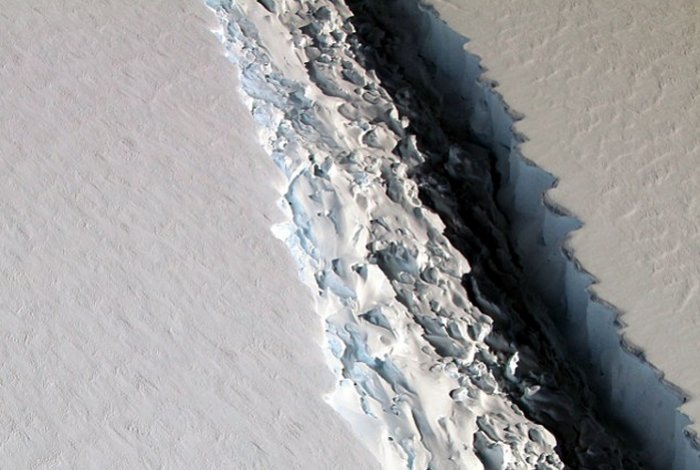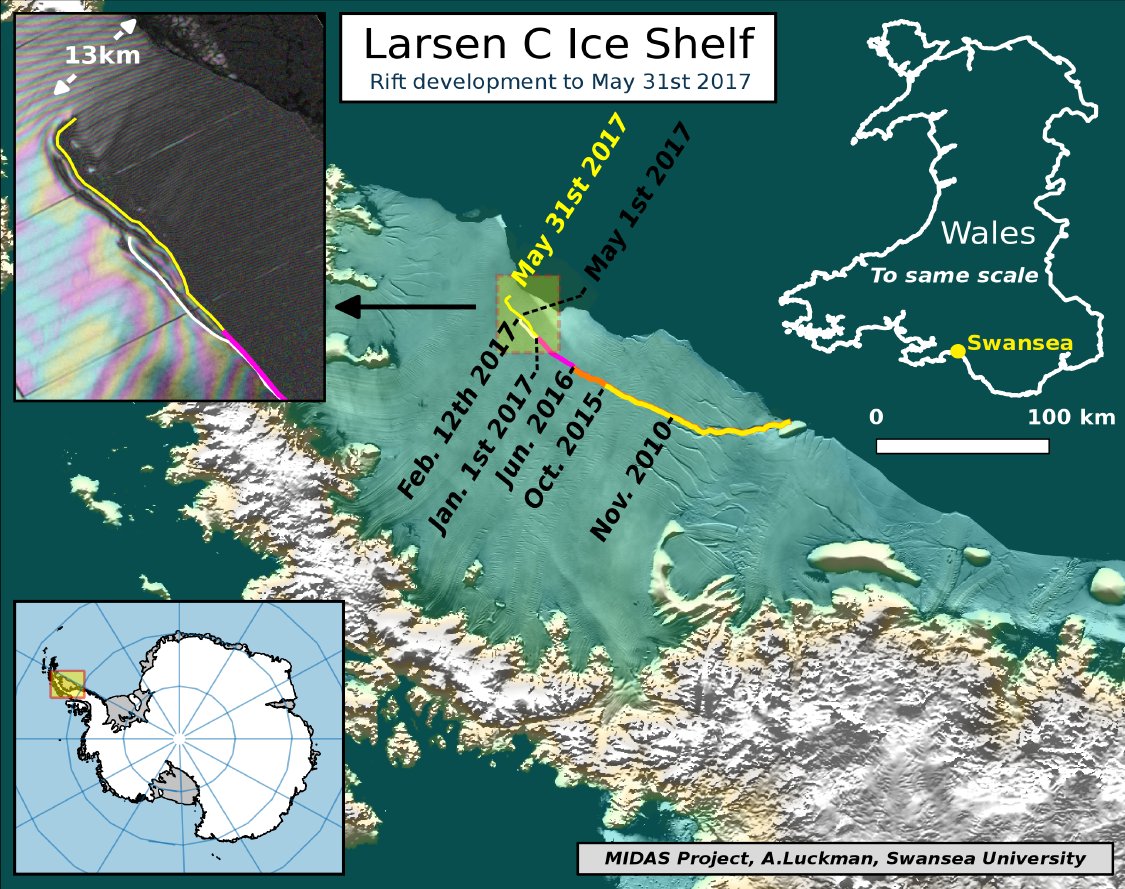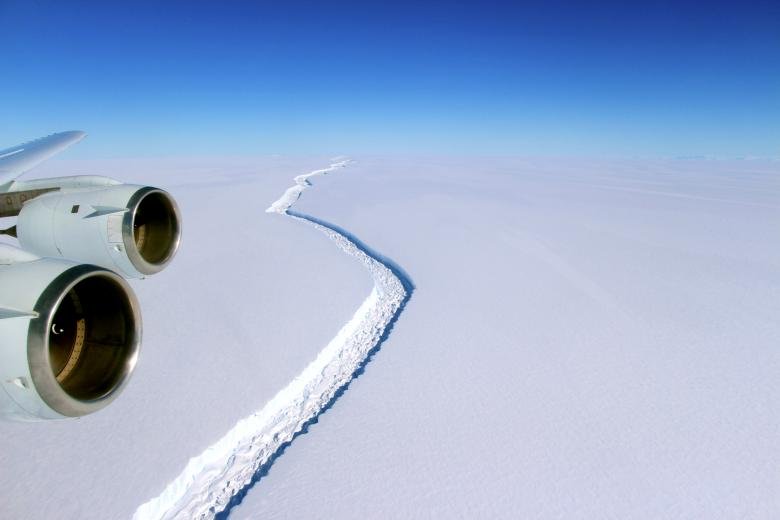New Satellite Images Show Giant Iceberg Will Split From Antarctica Anytime Now
MessageToEagle.com – The effects of climate change are most apparent in the Earth’s north and south poles, which one of the reasons why scientists monitor changes on Antarctica very closely.
New satellite images show a giant iceberg will split from Antarctica anytime now. The iceberg is estimated to be 5,000 square kilometers (1,930 square miles). Leading scientists say the iceberg is more than 300,000 times the size of the one that sunk the Titanic or roughly the size of Delaware!

According to experts, there appears to be very little to prevent the iceberg from breaking away completely.
The crack in the Larsen C Ice Shelf has been monitored for quite some time now. It has expanded 80 miles in length and 300 feet in width from 2010 to November 2016.
Now, aerial observations reveal the crack in the Larsen C Ice Shelf has grown an additional 17 km (11 miles) between May 25 and May 31 2017.

Once the crack reaches the ocean, which is expected to happen in the coming days or weeks, it will result in the formation of one of the largest icebergs ever recorded.
According to researchers with Project MIDAS, “this event will fundamentally change the landscape of the Antarctic Peninsula.”
See also:
Hundreds Of Giant Methane Craters Discovered On The Arctic Sea Floor
Danger Under The Ice – Global Warming Could Awaken Thousand-Year-Old Unknown Viruses
San Andreas Fault – The Most Dangerous Crack In America
Giant Landforms As Tall As The Eiffel Tower Discovered Beneath Antarctica Ice Sheet
When the huge chunk of ice breaks off, it will shrink Larsen C by about 10 percent and leave it with the smallest area ever recorded. The glaciers that feed into it could accelerate sea level rises across the globe, but the danger is not as big as some fear.
“If Larsen C were to collapse, it would be concerning for its own reasons, but the contribution to global sea level rise would be very small, something in the centimeters,” Dan McGrath, a scientist with the U.S. Geological Survey who has studied the ice sheet extensively said.

Continued destabilization and eventual breakup of the larger masses of ice in Western Antarctica, by comparison, would likely raise sea levels by three feet or more, McGrath added.
“It’s dramatic,” McGrath said of the potential split of the Larsen C iceberg. “But … it’s not the most concerning part of what we’re seeing down there.”
In 2002, a similar event occurred to the Larsen B ice shelf. One large iceberg cracked off of it, and the next summer the entire ice shelf broke off Antarctica into the ocean.
The formation of the giant iceberg fits within a broader trend of shrinking ice shelves in the region, which scientists believe is linked to global warming.
MessageToEagle.com
Expand for references










